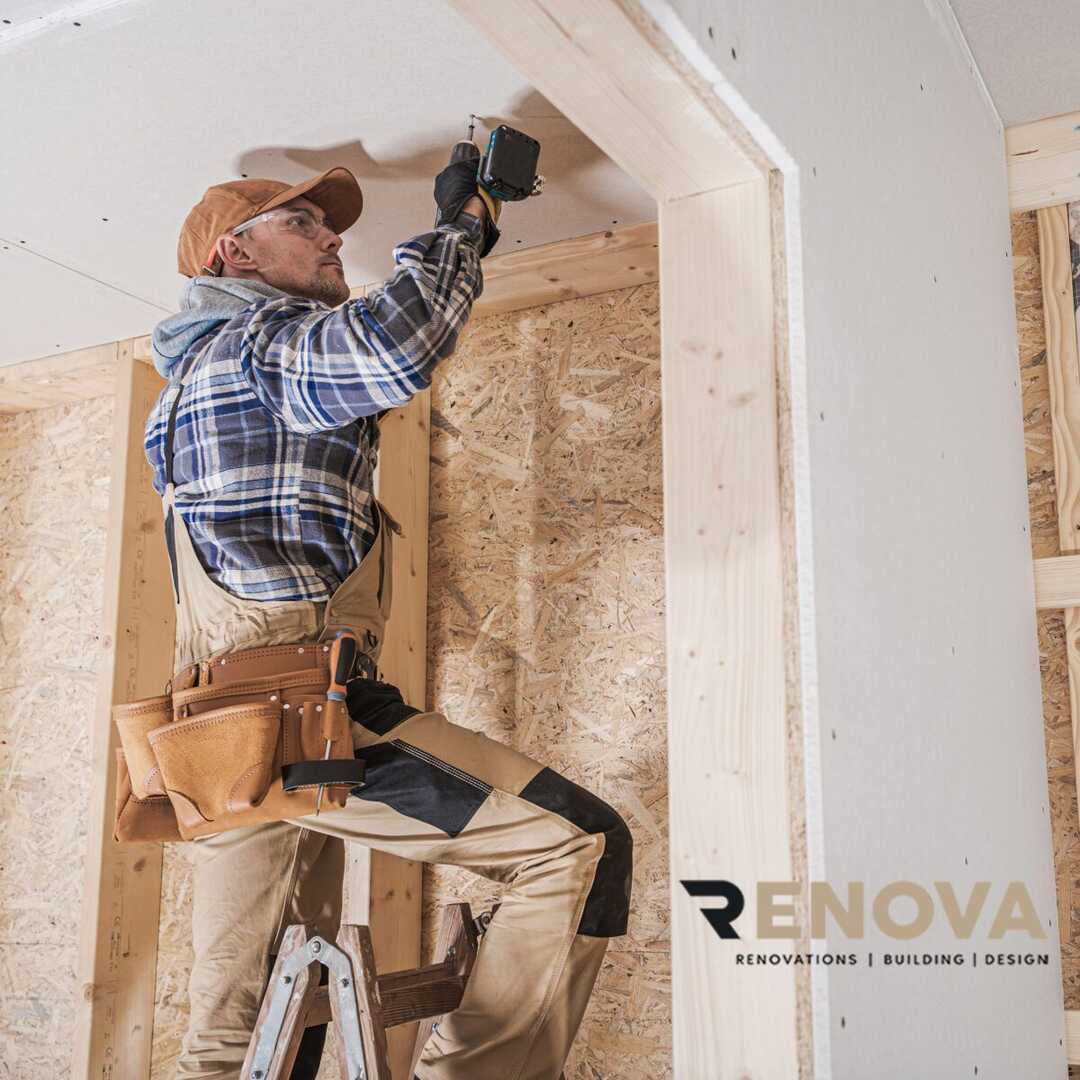Importance of General Contractors in Construction
General contractors play a pivotal role in the construction business, especially in residential projects and home projects. A general contractor acts as a liaison between the project owner, the construction crew, and any specialty contractors involved. They manage all facets of the project, ensuring that everything runs smoothly and that the final product aligns with the homeowner’s vision. Given the complexity and different requirements of each construction or home improvement project, the involvement of a general contractor, who holds a general contractor’s license, becomes vital.
A general contractor is an expert in understanding the environmental quality standards required for building projects. They maintain a strong connection with the Home Builders Association and stay updated about the latest trends and standards in the residential building industry, including new homes construction or residential remodel projects.
Scope of a General Contractor’s Duties
A general contractor’s duties cover the entire project, from obtaining the building permit to managing the build process. They have a bird’s eye view of the entire house construction or renovation project. A general contractor is typically responsible for providing all of the material, labor, equipment, and services necessary for the construction of the project.
Hiring a general contractor, such as RENOVA, a reputable commercial general contracting company, means that you, as the property owner, have a certificate holder who will be responsible for the timely manner of construction. Plus, they will work closely with the general manager of the project to ensure that your project is completed to the highest standard.
Overview of the Construction Industry
The construction industry is an incredibly vast and complex field. It involves various components, from specialty contractors and construction management experts to construction managers and the workforce. Each construction project, whether a fresh residential building or a renovation task, necessitates a unique approach tailored to the project’s specific demands.
In this extensive industry, general contractors emerge as vital players, leading the way in managing all aspects of a project. They ensure that the work is carried out seamlessly, adhering to the budget and schedule. A key part of their role involves managing construction tasks and repeat business with subcontractors, thus ensuring a project is delivered successfully.
Role of a General Contractor in the Construction Industry
In the construction industry, the general contractor is like a conductor, orchestrating various aspects of the project in harmony. Their role encompasses various duties, from negotiating contracts with subcontractors to maintaining a continuous dialogue with architects and the property owner. Their primary objective is to ensure that all parties involved are working towards a common goal – the successful and timely completion of the project.
The expertise of a general contractor is further reinforced when they coordinate with specialty contractors. This allows for the seamless integration of various elements of construction, be it electrical work, plumbing, or carpentry. Such a role demands a strong knowledge base in construction management, a skill that every successful general contractor, such as those at RENOVA, possesses.
Impact of General Contractors on the Construction Process
The involvement of a general contractor greatly enhances the efficiency and quality of the construction process. By managing schedules, securing materials, and ensuring that the work of various tradespeople aligns with the project goals, the general contractor keeps the construction business on track. This is particularly true for complex projects, such as new homes or major residential remodels, where the coordination of many different tasks and workers is crucial.
In the hands of a reliable general contractor, a construction project is not just about building a structure. It’s about creating a built environment that aligns with the property owner’s vision while meeting environmental quality standards. By ensuring each task is completed in a timely manner and managing any problems that arise, general contractors act as the linchpin for the entire construction project.
Role of General Contractor in Home Renovation
Benefits of Hiring a General Contractor for Home Renovation
When it comes to home renovation projects, hiring a general contractor can be a game-changer. Choosing the right general contractor can significantly enhance your home renovation experience. They provide a range of services that can streamline the entire process, helping you realize your vision of the best kitchen or living room remodel. A general contractor takes on the responsibility of managing all aspects of the project, from coordinating with specialty contractors to ensuring the delivery of high-quality materials and workmanship.
An established general contractor like RENOVA also has a proven track record of repeat business, demonstrating their ability to consistently deliver satisfactory results. They understand the unique requirements of residential projects, providing guidance and expertise every step of the way.
Responsibilities of a General Contractor in Home Renovation
Taking on a home renovation project is not an easy task. It requires an intricate understanding of the type of work involved, the materials needed, and the timeline for the completion of the project. That’s where a general contractor comes in. A general contractor takes on the responsibility of managing all aspects of a renovation project.
Whether it’s sourcing materials, hiring and managing a team of workers, or ensuring that the project stays within budget and on schedule, the general contractor is there to oversee it all. For example, if you are planning to remodel your kitchen, having a general contractor can significantly simplify the process. They will ensure you have the best kitchen design possible, meeting your needs and exceeding your expectations.
Managing Subcontractors
Managing subcontractors is another crucial responsibility of a general contractor. They hire and supervise specialty contractors such as plumbers, electricians, and painters, who bring their own unique skill sets to the project. This involves coordinating schedules, resolving conflicts, and ensuring that all work is performed to the required standard.
By engaging a reliable general contractor, you’re not just hiring a manager for your home project. You’re also getting access to their network of trusted, high-quality subcontractors. These relationships can be invaluable in ensuring that your renovation project is completed to the highest standards, in a timely manner.
Building Code Compliance and Permits
General Contractor’s Role in Securing Permits
Securing the necessary permits is a critical part of any construction project. As a part of their responsibilities, general contractors handle this process on behalf of homeowners.
General contractors understand the complexities of the permitting process, having dealt with it on countless projects across different local areas, from general contractors near you in West Palm Beach, Fl to Coconut Creek, Fl. They know what documents to submit, who to contact, and how to avoid common pitfalls that could delay the issuance of permits.
This expertise not only saves homeowners time but also helps avoid legal issues that could arise from not having the required permits.
Ensuring Building Code Compliance
Building code compliance is crucial for any construction project. It ensures that the built environment is safe, energy-efficient, and accessible.
General contractors are well-versed in local building codes. They ensure that the design, materials, and construction methods used on the project comply with these regulations. This can range from ensuring the correct type of insulation is used to making sure the living room meets minimum size requirements.
In addition, general contractors coordinate inspections with local authorities to confirm that the work done complies with building codes. They address any issues identified during these inspections promptly and effectively.
Finally, adhering to building codes helps ensure the final product’s quality and safety. It gives homeowners the peace of mind that their home has been built to high standards and meets all local requirements.
Project Management and Construction Timeline
Role in Project Management
In the realm of a construction project, the general contractor is the de facto project manager. They oversee the construction project from beginning to end, ensuring all the moving parts come together to deliver the final product.
The general contractor creates the project’s timeline, outlining when each stage of the project should start and end. This schedule ensures that everyone involved in the project knows what needs to be done and when.
Another critical aspect of project management is communication. The general contractor maintains open lines of communication between all stakeholders, including the homeowner, subcontractors, and suppliers. This transparency ensures everyone is on the same page and helps avoid potential misunderstandings or delays.
Maintaining Construction Timeline
Maintaining the construction timeline is a critical responsibility of a general contractor. They ensure that all project tasks are completed within the scheduled time frame, mitigating potential delays.
One way a general contractor does this is by effectively managing subcontractors, making sure they complete their work on schedule. This includes coordinating their tasks and resolving any issues that could delay their work.
Another essential aspect of maintaining the construction timeline is adapting to unexpected circumstances. Whether it’s inclement weather, supply chain issues, or unexpected site conditions, a good general contractor knows how to adjust the project schedule to accommodate these issues while minimizing delays.
Cost Estimates and Budget Management
A general contractor plays a significant role in the financial aspects of a construction project. They provide cost estimates before the project begins, allowing homeowners to plan their budget accurately.
During the construction process, they manage the budget, ensuring that costs don’t spiral out of control. This includes managing payments to subcontractors and suppliers, tracking expenses, and making necessary adjustments to stay within the budget.
Finally, a good general contractor is transparent about costs. They communicate regularly with the homeowner about the project’s financial status, alerting them to any potential issues that could impact the budget. This level of financial oversight helps prevent unexpected costs and ensures the project stays on track financially.
Quality Control and Risk Management
Importance of Quality Control in Construction
Quality control is essential in construction. It ensures the construction work meets the agreed-upon standards and delivers a final product that the homeowner will be satisfied with.
A general contractor is responsible for maintaining quality control on the project. They regularly inspect the work done by subcontractors, ensuring it meets quality standards. They also manage any necessary repairs or corrections, ensuring any issues are resolved promptly.
Role in Risk Management
Risk management is another critical role of a general contractor. They identify potential risks, from safety hazards to financial risks, and take steps to mitigate them.
This includes ensuring safety regulations are followed on the construction site, managing financial risks, and planning for potential project delays. By effectively managing these risks, a general contractor helps ensure the smooth execution of the project.
Conducting Inspections
Regular inspections are a crucial part of quality control and risk management. A general contractor oversees these inspections, ensuring they are conducted at key stages of the project.
These inspections ensure the work done meets the required standards and complies with local building codes. Any issues identified during these inspections are promptly addressed, preventing them from becoming larger problems later on.
Finally, inspections at the final stages of the project ensure that the finished product meets the homeowner’s expectations. Any outstanding issues are added to the punch list and addressed before the project is considered complete.
The Construction Process
Site Preparation and Demolition
The construction process begins with site preparation. This involves clearing the site, removing any existing structures, and preparing the ground for construction.
The general contractor oversees this process, ensuring it is done safely and efficiently. If demolition is involved, they ensure it is carried out in compliance with local regulations and safety standards.
Once the site is prepared, the general contractor coordinates the necessary groundwork. This includes excavating for the foundation, installing utility lines, and any other necessary prep work.
Interpretation of Design and Blueprint Reading
Interpreting the design and reading blueprints is a critical skill for a general contractor. They translate the architect’s plans into a physical structure, ensuring the final product matches the design.
This requires a thorough understanding of architectural drawings and construction techniques. It also requires strong communication skills to coordinate with the architect and other members of the project team.
Another key part of this process is identifying potential issues in the design or blueprints. By catching these issues early, the general contractor can address them before they become costly problems during construction.
Construction and Remodeling Steps
Once the design has been interpreted and the site prepared, the construction process begins. This involves a series of steps, from laying the foundation and framing the structure to installing the roofing and finishing the interior.
The general contractor oversees each of these steps, ensuring they are completed on schedule and meet quality standards. They also coordinate the various trades involved in each stage, from carpenters and plumbers to electricians and painters.
Once construction is complete, the general contractor coordinates the final stages of the project. This includes cleanup, final inspections, and addressing any items on the punch list. Below are the common steps that a general contractor supervises:
- Site Preparation: The first step in any construction project is to prepare the site. This involves clearing the land of any obstructions, leveling the ground, and setting up any necessary infrastructure like power lines and water supply. The general contractor ensures the site is safe and ready for construction to begin.
- Foundation Work: Once the site is prepared, the foundation work begins. The contractor supervises the digging of the foundation, the installation of footings, and the construction of the foundation walls. This is a crucial step, as a solid foundation is key to the stability and longevity of the structure.
- Framing: After the foundation work, the framing of the house is done. This includes the walls, floors, and roof structures. The general contractor coordinates this step, ensuring the building’s frame is strong and stable.
- Installation of Systems: This step involves installing the electrical, plumbing, and HVAC systems. The contractor collaborates with the specialty contractors to ensure that all installations meet the necessary building codes and regulations.
- Drywall and Flooring: Once the systems are installed, the walls and floors are completed. This involves installing and finishing the drywall and flooring. The contractor manages this step, ensuring the work is done properly and to the homeowner’s specifications.
- Exterior Work: This includes any work that needs to be done on the exterior of the house, such as siding, roofing, and window installation. The general contractor supervises this work, coordinating with the appropriate trades to ensure it’s completed efficiently and correctly.
- Interior Finishing: The final steps in the construction process include painting, installing kitchen cabinets, and finishing any other interior details. The contractor oversees this phase, ensuring everything is completed to the homeowner’s satisfaction.
- Landscaping: The final step in a construction project often involves landscaping the exterior of the house. The contractor works with landscapers to create a pleasing outdoor environment that enhances the overall appeal of the house.
Remember, every construction or remodeling project is unique, and the specific steps involved may vary. However, a reliable general contractor like RENOVA can effectively manage all these steps, ensuring a successful completion of your project.
Working with Skilled Trades
Overview of Skilled Trades in Construction
A construction project involves various skilled trades, each contributing to different aspects of the final product. These trades include carpenters, electricians, plumbers, painters, and many others.
Each trade requires specialized skills and expertise. For example, carpenters construct the frame of the building, while electricians handle the wiring. Plumbers install pipes and fixtures, and painters add the finishing touches to the interior and exterior of the building.
These trades must coordinate their work to ensure the project progresses smoothly. This is where the general contractor comes in.
Managing Skilled Trades as a General Contractor
A key responsibility of a general contractor is managing the skilled trades involved in a construction project. This includes hiring subcontractors, coordinating their work, and resolving any issues that arise.
When hiring subcontractors, the general contractor considers factors such as their expertise, reputation, and price. They often have a network of reliable subcontractors they work with regularly, ensuring quality work and timely completion.
Once the subcontractors are hired, the general contractor coordinates their work. This involves creating a schedule that outlines when each trade should be on the job site and what work they should be doing. This coordination ensures the project progresses smoothly and avoids delays.
Finally, the general contractor handles any issues that arise. This includes resolving disputes, addressing quality issues, and managing any changes to the project scope.
Post-Construction Responsibilities
Punch List and Final Inspection
Once construction is complete, the general contractor is responsible for a final inspection and creating a punch list. The punch list includes any outstanding tasks that need to be completed before the project is considered finished.
The general contractor walks through the project with the homeowner, noting any issues that need to be addressed. These can range from minor cosmetic fixes to more significant issues.
Once the punch list is created, the general contractor coordinates with subcontractors to complete these tasks. They then conduct a final walk-through with the homeowner to ensure all items on the punch list have been addressed to the homeowner’s satisfaction.
Warranty and After Service
After the construction project is complete, the general contractor’s responsibilities continue. They provide a warranty on their work, addressing any issues that arise after the project’s completion.
This warranty covers various aspects of the construction work, from materials to workmanship. It provides homeowners with peace of mind, knowing that any issues will be taken care of.
In addition to the warranty, many general contractors provide after-service. This can include regular maintenance, inspections, and other general contractor services to keep the building in top condition. This ongoing service further enhances the value that a general contractor provides to homeowners.
Choosing the Right General Contractor
What to Look for in a General Contractor
When choosing a general contractor, there are several factors homeowners should consider. These include the contractor’s experience, reputation, communication skills, and pricing.
Experience is crucial in a general contractor. An experienced contractor will have the knowledge and skills to manage a construction project effectively, from planning to completion. They will also have a network of reliable subcontractors and a track record of successful construction projects.
Reputation is another critical factor. A contractor with a good reputation is likely to deliver quality work and provide excellent customer service. Homeowners can check the contractor’s reputation by reading reviews and asking for references.
Communication skills are also important. A good general contractor maintains open lines of communication with the homeowner, keeping them informed about the project’s progress and addressing any concerns promptly.
Finally, pricing is a factor to consider. While cost should not be the sole factor in choosing a contractor, it’s important to find a contractor who offers fair and transparent pricing.
Understanding Contractor Licensing and Insurance
Before hiring a general contractor, homeowners should verify that the contractor is licensed and insured. A licensed contractor has met the state’s requirements for competence and professionalism.
Insurance is also crucial. A contractor’s general liability insurance protects homeowners in case of accidents or damage during the construction process. Some states also require contractors to have workers’ compensation insurance to protect workers in case of injury on the job.
In addition to checking the contractor’s license and insurance, homeowners should also verify that any subcontractors the contractor plans to hire are similarly licensed and insured.
Reading and Understanding Contractor Reviews
Reviews can provide valuable insights into a contractor’s quality of work and customer service. When reading reviews, homeowners should look for trends, both positive and negative.
Positive reviews can highlight a contractor’s strengths. For example, multiple reviews mentioning the contractor’s punctuality or quality of work can indicate these are consistent strengths.
Negative reviews can provide insights into potential issues. However, it’s important to consider the context of these reviews. A single negative review among many positive ones may be an outlier, while multiple negative reviews mentioning the same issue could be a red flag.
Ultimately, choosing the right general contractor involves careful research and consideration. By understanding the role of a general contractor and what to look for, homeowners can make an informed decision and ensure a successful construction project.
Remember, a construction project is not just about the final product. It’s also about the experience along the way. At RENOVA, we pride ourselves on delivering both high-quality results and a positive experience for homeowners. With our team of experienced professionals and commitment to customer satisfaction, we’re confident we can deliver on your vision for your home. Contact us today for an instant quote.








